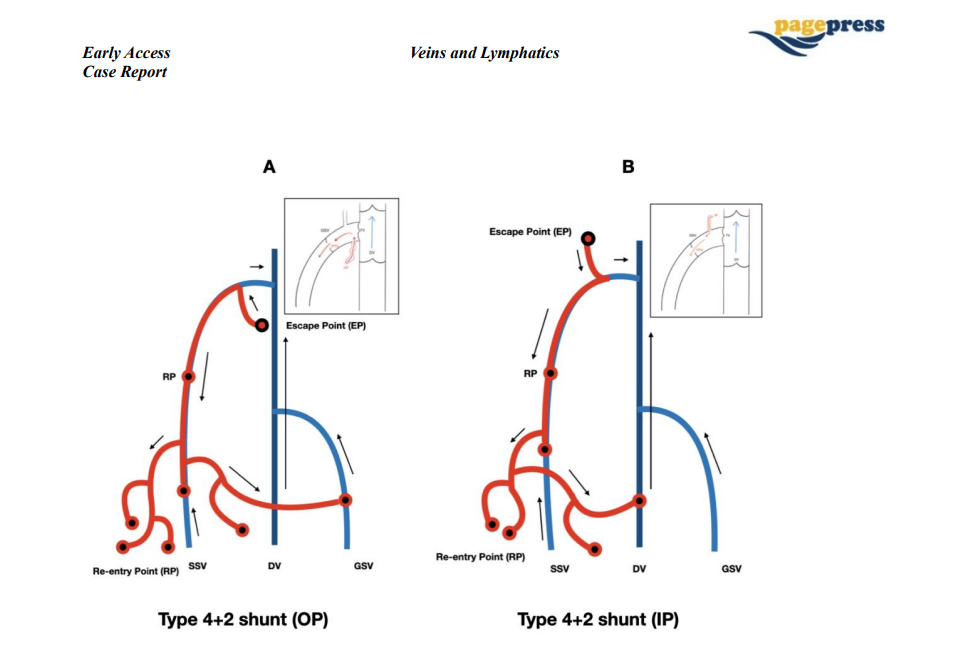ABSTRACT
Pelvic Leak Points (PLPs) have been identified as a potential underlying cause of varicose veins in the lower extremities, even among male patients. These points can often be overlooked without comprehensive venous hemodynamic assessment, leading to incorrect treatment modalities and high recurrence rates. The CHIVA (Conservative Hemodynamic Cure of Incompetent Varicose Veins) method offers a minimally invasive approach that aims to correct hemodynamic imbalances while preserving the venous drainage network in the lower extremities. This article presents two case studies involving male patients with symptomatic varicose veins attributed to PLPs, who were successfully treated using the CHIVA method. Read the full article here.
INTRODUCTION
Varicose veins are a common vascular disorder, often considered to be more prevalent in women. However, PLPs have been identified as a significant cause of varicose veins in men. The CHIVA method, a minimally invasive treatment, has shown promise in treating this condition effectively.
METHODOLOGY
The study involved two male patients who presented with symptomatic varicose veins. A thorough venous hemodynamic assessment was conducted to identify PLPs as the underlying cause. The CHIVA method was then employed to treat the identified PLPs.


KEY FINDINGS
- Thorough Assessment: The importance of a comprehensive venous hemodynamic assessment cannot be overstated, as PLPs can be easily missed, leading to ineffective treatments.
- CHIVA Methodology: This minimally invasive approach focuses on correcting hemodynamic imbalances, thereby treating the root cause of the condition.
- Successful Treatment: Both case studies resulted in successful treatment with no recurrence, validating the efficacy of the CHIVA method.


CONCLUSION
The CHIVA method, when applied with a proper venous hemodynamic assessment and strategic support, could serve as a safe and effective treatment modality for PLPs in men. This underscores the importance of individualized treatment plans based on comprehensive assessments.
Authors: Jianping Deng, Xiaoyin Zhu, Xin Du, Lei Su, Yijian Gu, Qiang Zhang
Source: PagePress Journals
DOI: 10.4081/vl.2023.11271